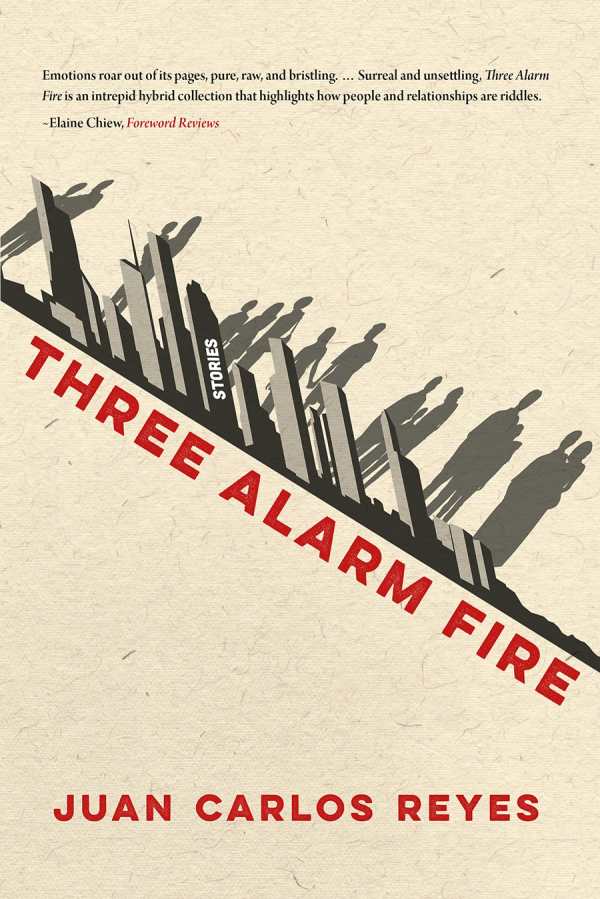Three Alarm Fire
Stories
In the bold, experimental stories of Juan Carlos Reyes’s Three Alarm Fire, reading is a riddle that results in salvation.
Shifting in register from abject horror to cool irony and featuring slippery, compelling details, this is a book filled with sudden, slicing truths that takes challenging the act of reading itself as its raison d’être. Emotions roar out of its pages, pure, raw, and bristling. Long, meandering sentences are placed at the fore, with the prose doubling back on itself, bounding forward again, and experimenting with language and meaning. Conversations run without punctuation marks or tags; different consciousnesses bleed together.
Peopled by vague, sometimes unnamed characters and elusive moments, the collection is structured in several sections, each containing a set of stories connected by themes. “Three Alarm Fire” features the harrowing insanity of violence; in it, a vlogger chases down a victim’s family for his live feed. And in a story in “All Apologies,” a woman mourns after her fiancé is gunned down by the police. “The Reviews Are In” has a self-referential, tongue-in-cheek story about a reviewer reviewing this very collection, offering keys to unlock its mysteries. Another review provides metacommentary on the act of writing as spectacle.
In “Elements of a Bystander,” the act of witnessing blurs into complicity; terror sits in the throat without the wherewithal to grasp a situation. And the novella “A Summer Lynching” is haunting: its interlinked stories, told in thirteen loops, are about a man dying by hanging. There are witness accounts from the woman who discovers his body, neighbors, ambulance workers, and police. “And Of Hearts and Minds” centers love between women and men, as where a couple discusses imaginary books, dancing between “obstruction and flirtation.”
Surreal and unsettling, Three Alarm Fire is an intrepid hybrid collection that highlights how people and relationships are riddles.
Reviewed by
Elaine Chiew
Disclosure: This article is not an endorsement, but a review. The publisher of this book provided free copies of the book to have their book reviewed by a professional reviewer. No fee was paid by the publisher for this review. Foreword Reviews only recommends books that we love. Foreword Magazine, Inc. is disclosing this in accordance with the Federal Trade Commission’s 16 CFR, Part 255.

